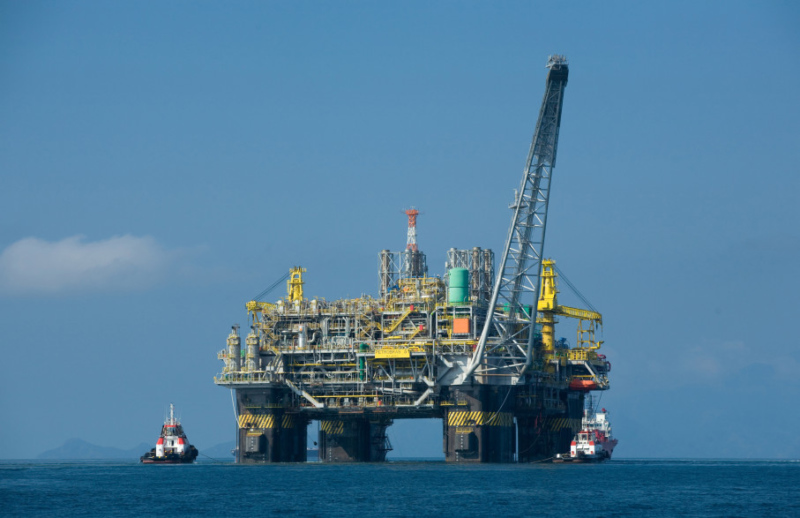What is the Outlook for Colombia’s Oil Sector?
What is the outlook for Ecopetrol and the Colombian oil sector in the short to medium term?
A Daily Publication of The Dialogue
Q: Despite profits up 11 percent last year, Brazilian state oil company Petrobras reported last month that its fourth quarter net profit was down 19 percent year-on-year, adding that it will cut its investment plan through 2018 by 7 percent. More bad news came last week when lawmakers decided to install a special congressional committee to probe allegations of bribery involving Petrobras employees and a foreign company. How bad is Petrobras' situation today, and what bright spots are on the horizon? How big of a role is the government and politics playing in the company's present circumstances, and what policy changes would improve the outlook for Petrobras moving forward?
A: Theodore M. Helms, executive manager of investor relations at Petrobras: "Comparing quarterly profits year over year does not necessarily reflect fundamentals. Nevertheless, profits are less than they otherwise would be if Petrobras had fully increased domestic prices to reflect depreciation of the real and historically high international oil prices. The Petrobras board fully recognizes the need to adjust prices. In November they approved a pricing methodology by which Brazilian product prices will converge with international prices, and leverage will be reduced to targeted levels. To clarify, our investment plan was not cut due to reduced profits, rather investments are reducing because we will have largely completed a cycle of refinery expansion and modernization, undertaken to meet more stringent environmental standards and growing consumer demand in Brazil. In the future we will be spending more on upstream activities and less on downstream, and total spending will decline. This was always foreseen in our long-term planning. On a bright note, Petrobras' financial situation can quickly be improved with convergence to international prices and growing oil production. In 2013 and 2014 we will install an additional one million barrels of capacity. Between 2016 and 2018 we have an additional 15 offshore projects underway, representing approximately 2 million barrels per day (bpd) of capacity. With this new capacity, we project our oil production to increase from 1.93 million bpd in 2013 to 3.2 million bpd in 2018. Convergence and growth can more than double our cash flows in a short period of time. We are an oil company pursuing a rich set of commercial opportunities. 'Policy changes' are not needed. We simply need to continue executing on production and implementing our pricing methodology."
A: Lisa Viscidi, director of the Energy, Climate Change and Extractive Industries Program at the Inter-American Dialogue: "Petrobras' decision to trim its 2014-2018 investment plan to a still whopping $220.6 billion is in many ways a positive development. With one of the world's largest corporate investment plans, Petrobras is also the world's most indebted oil company with debts of $114 billion, and rating agencies have placed a negative outlook on its investment-grade rating. Pressure to reduce leverage is driving Petrobras' $10 billion divestment plan. Last year it sold upstream assets in Peru to China's CNPC for $2.6 billion and a 35 percent share in a major deepwater project to Shell and India's ONGC for $1.54 billion. The budget cut mainly reflects lower downstream spending, which will fall to $38.7 billion from $64.8 billion in the previous plan—a wise move, as Petrobras had invested lavishly in upgrading and building refineries in recent years to meet rising domestic fuel demand. Upstream spending in Brazil—equal to about 70 percent of total planned investment—will rise from $147.5 billion to $153.9 billion, with over half allocated to developing Brazil's pre-salt fields. Petrobras' massive debt is due to two pressing financial burdens: pre-salt investments, including its obligation to operate and take at least a 30 percent stake in every pre-salt project, and fuel price caps that force it to import gasoline at a loss. As Brazil's national oil company, Petrobras has always faced tight government control—even since it started floating shares. But recent interventions have significantly increased the financial and operational burden on Petrobras, which also missed its 2013 production target as liquids output fell by 2.5 percent. The bright spot, however, is that Petrobras still has access to gigantic reserves. It ended 2013 with 16 billion barrels of oil equivalent of proven reserves, boasting a 131 percent reserve replacement rate and a reserves-to-production ratio of 20 years. Its long-term production target remains an impressive 4.2 million barrels per day in 2020."
A: João Augusto de Castro Neves, director at the Eurasia Group in Washington: "A recently created congressional committee to probe bribery accusations is the least of Petrobras' problems. Lawmakers from the ruling coalition appear to be taking advantage of the situation to try to pressure President Dilma Rousseff for more acreage in the administration. If they get what they want, the inquisitor mode—at least from Congress—will simmer down into irrelevance. Meanwhile, the company continues to pay the cost of questionable policy decisions made by Brasília in recent years. While ambitious local content requirements increase the cost of investment and slow down oil production, the inability to manage domestic fuel prices more freely to keep up with fluctuating international oil prices puts a strain on the company's balance sheet. The situation is exacerbated by the government's decision to enhance Petrobras' role in developing the pre-salt oil province. But in addition to Petrobras' growing financial and operational constraints, the government is slowly coming to terms with Brazil's new position in the geopolitics of oil. After recent discoveries, the tight oil and shale gas revolution in the United States, and the promise of energy reform in Mexico, Brazil has lost some of its lure as the most promising oil play in the world. In other words, to keep or attract more investment Brasília will have to offer better terms, like creating more opportunities for international oil companies by relieving Petrobras of some of its obligations in the pre-salt. When huge oil reserves were discovered in 2007, Brazilian officials celebrated as if the country had won a lottery ticket. The country is still well-positioned to become one of the major global energy players in the next couple of decades. But the idea of a lottery ticket may be misleading. After all, it appears that the clock is ticking for the prize to be cashed wisely."
A: Francisco Ebeling Barros, member of the board of Economics and Energy Policy of the Brazilian Institute of Oil, Gas and Biofuels in Rio de Janeiro: "In many cases national oil companies (NOCs) are used by governments in order to achieve both distributional and developmental goals, as measured by the level of tax collection that is invested in social expenditures and by the level of industrialization and innovation the company brings along. Petrobras is a wonderful example. In a 1998 book Linda Weiss argued that 'distributionism requires developmentalism, and vice versa, if each is to be robust.' The austerity announced in the company's 2014-2018 business plan is a clear indicator that CEO Maria das Graças Silva Foster's administration is working toward restoring the latter objective, as the former is now guaranteed by law. At the present time it is very difficult to fully achieve them at the same time, especially due to the high local content aims that are imposed by the government. In this sense, it is expected that in order to expand Petrobras' production toward an average 5 million barrels per day in the next decade, which will be simultaneously a huge distributional and developmental opportunity for the country, some sacrifices will have to be made now as concerns the local delivery of FPSOs and the like. In this sense, in my opinion Petrobras' financial results have to be interpreted not as a definitive shutdown but as a 'stop-and-go' in a trajectory that will be very promising in the future. Furthermore, it is very clear that Petrobras' less-than-ideal performance has been politically used both by the opposition and by 'friendly fire' inside the government."
What is the outlook for Ecopetrol and the Colombian oil sector in the short to medium term?
Brazil’s oil and gas and electricity sectors are an important destination for Chinese direct investment.
Even though the Snowden affair paralyzed relations, exchanges between Brazilian and US officials have endured.
 Petrobras / Agência Brasil / CC BY 3.0 BR
Petrobras / Agência Brasil / CC BY 3.0 BR

 Video
Video